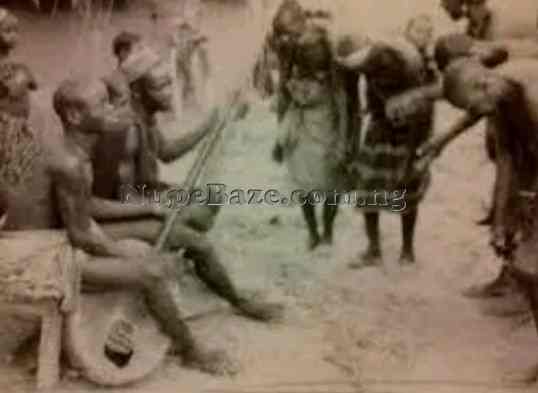said they originated from Bornu.¹
But Professor Leo Frobenius wrote that the Gwari people were already an established race when Kisra arrived Paiko at the beginning of the 7th century, that is some six solid centuries before Bornu Kingdom was founded on the reaches of the Lake Chad in the 12th century.²
So, the Gwari people couldn’t have originated from the Lake Chad Bornu which they predated by close to a millennium. The only Bornu from which the Gwari people could have originated is Bornu Gungu which, according to Sir H.R. Palmer, was a prehistoric, and now extinct, Bornu Kingdom on the River Niger in today’s Niger State.³
Bornu Gungu was called Bornu-Borgu by Sultan Bello because it was close to Borguland.⁴ It was known as Bornu Gungu because it was located in the Gungu Province. According to the French geographer Louis Brion de la Tour in his 1766 map, Gungu was the national name of the Nupe Nation in former times.⁵
So, Bornu Gungu was actually Bornu Nupe. Meaning, the Gwari people originated from Bornu Nupe. Old Gbara, at Yauri close to Borgu, was the capital of Bornu Nupe. Gbara was also known as Gbari or Gwari. The Gwari people originated from Old Gbara in those days when the Gwari and Nupe people were one and the same indistinguishable people. To this day Gwari (Gbagyi/Gbari) is still classified as a Nupoid, that is Nupe, language by scientists because there are only dialectal differences between the two.⁶ you can also read more about Gbagyi women.
References:
1 – Temple, O. (1922). Notes on the tribes, provinces, emirates and states of the northern provinces of Nigeria. Lagos: C.M.S., London: James Townsend & Sons, p. 121.
2 – Frobenius, L. (1913). The Voice of Africa: Being an Account of the Travels of the German Inner African Exploration Expedition in the Years, 1910-1912, vol. II. Translated by Rudolf Blind. London: Hutchinson & Co., p. 619.
3 – Palmer, H.R. ([1928] 1967) Sudanese Memoirs: Being Mainly Translations of a Number of Arabic Manuscripts Relating to the Central and Western Sudan. Vol. I. London: Cass, p. 89.
4 – Sultan Bello quoted in Temple, O. (1922). Notes on the tribes, provinces, emirates and states of the northern provinces of Nigeria. Lagos: C.M.S., London: James Townsend & Sons, p. 10.
5 – Louis Brion de la Tour. (1766). Partie De L’Afrique en deca de L’Equateur. Paris.
6 – Blench, Roger. (2012). An Atlas of Nigerian Languages. 3rd. Edition, Cambridge: Kay Williamson Educational Foundation.
7 – Gbagyi People Wikipedia.
| Author: | Ndagi Abdullahi |
|---|---|
| Royal Title: | Amana Nupe |
| Whatsapp Contact Only: | 08137982743 |
